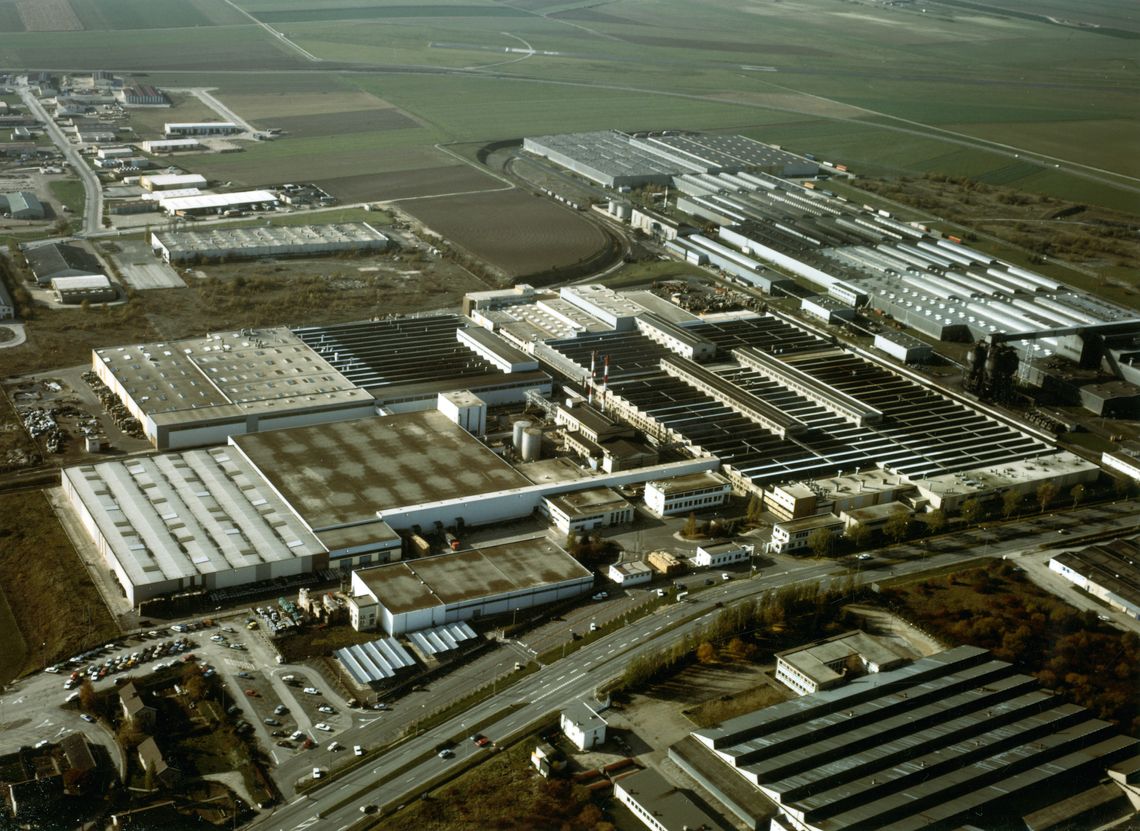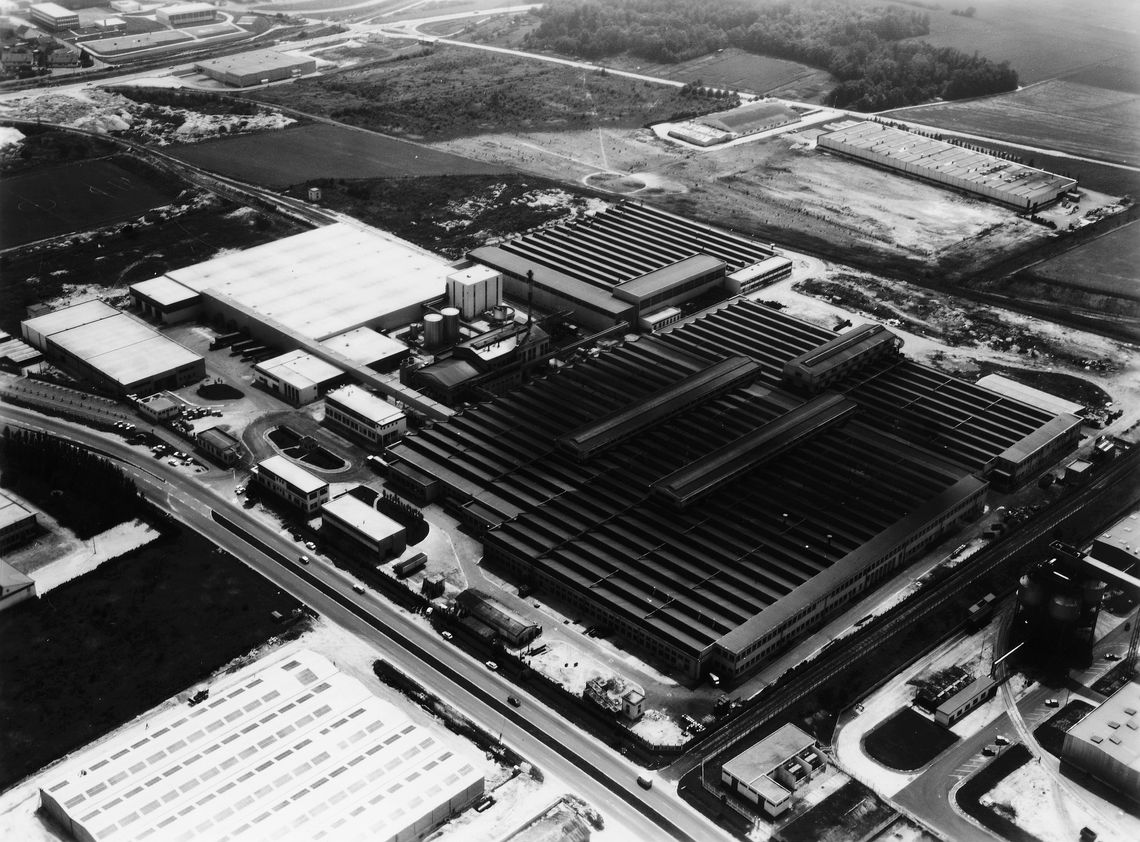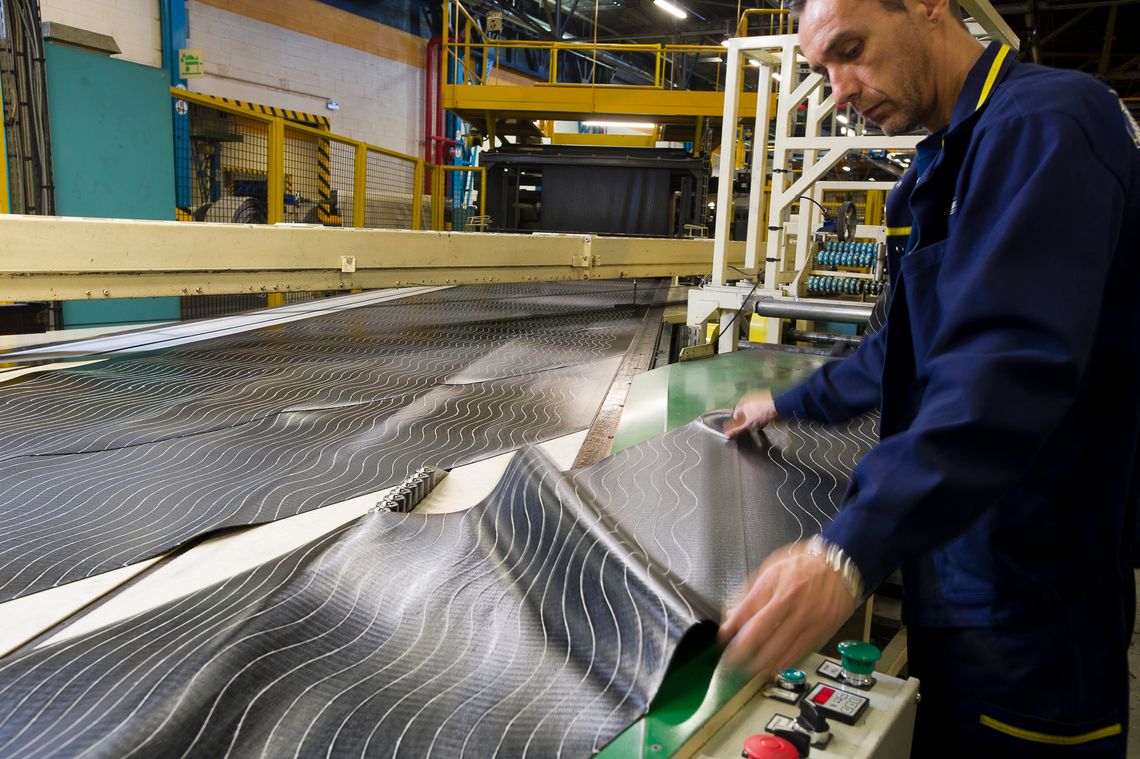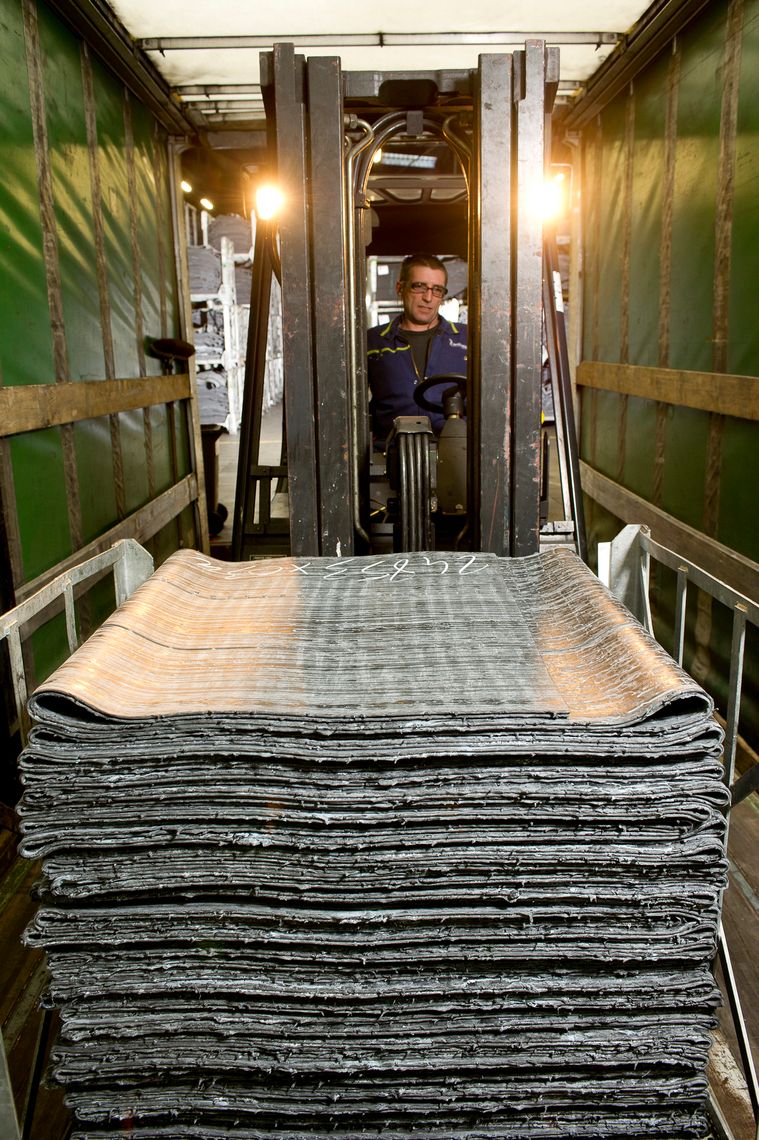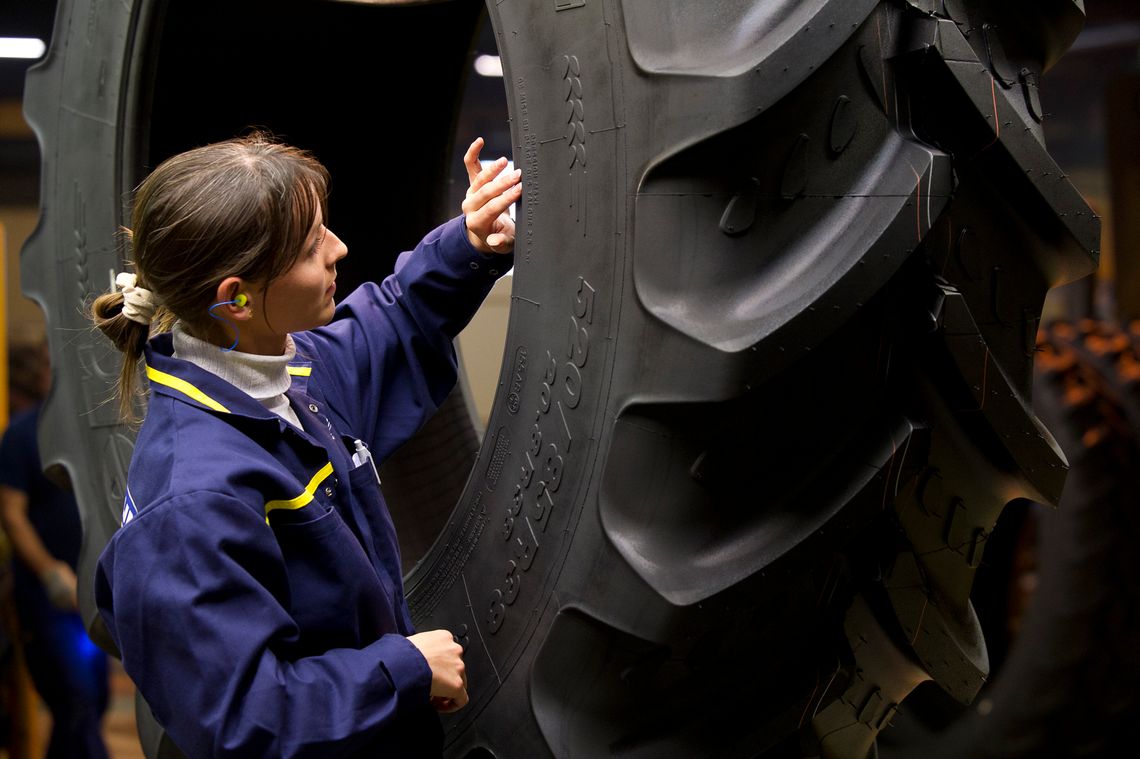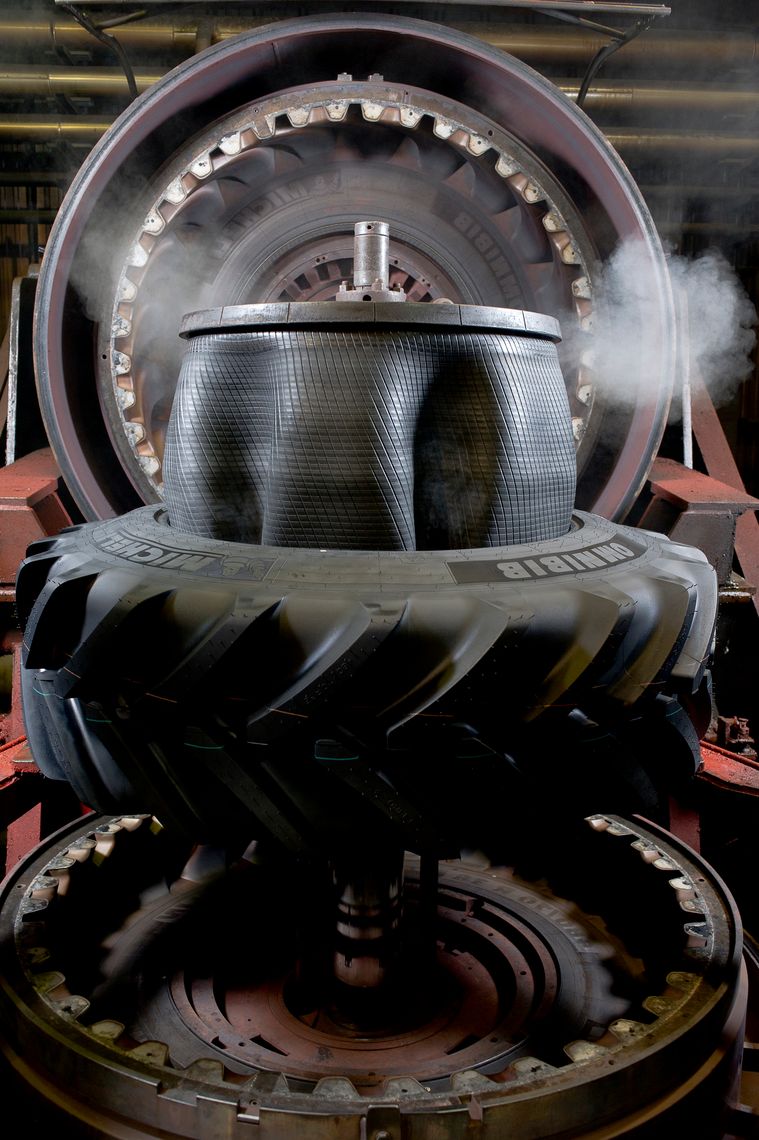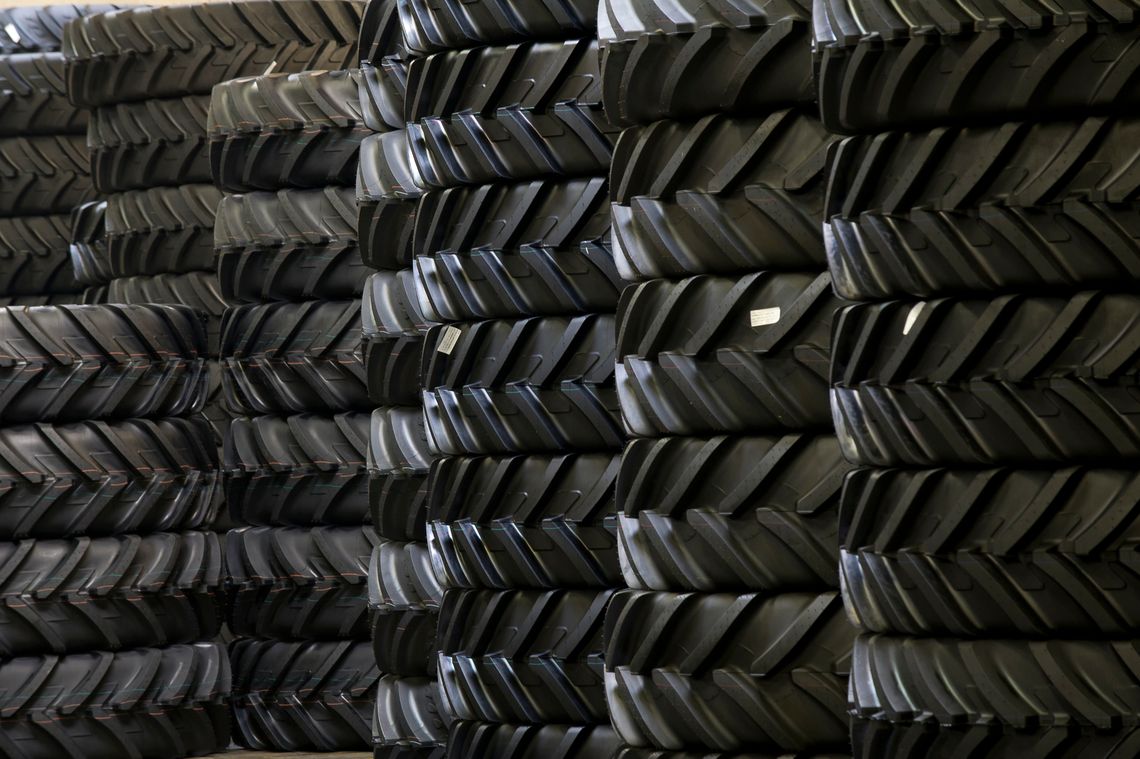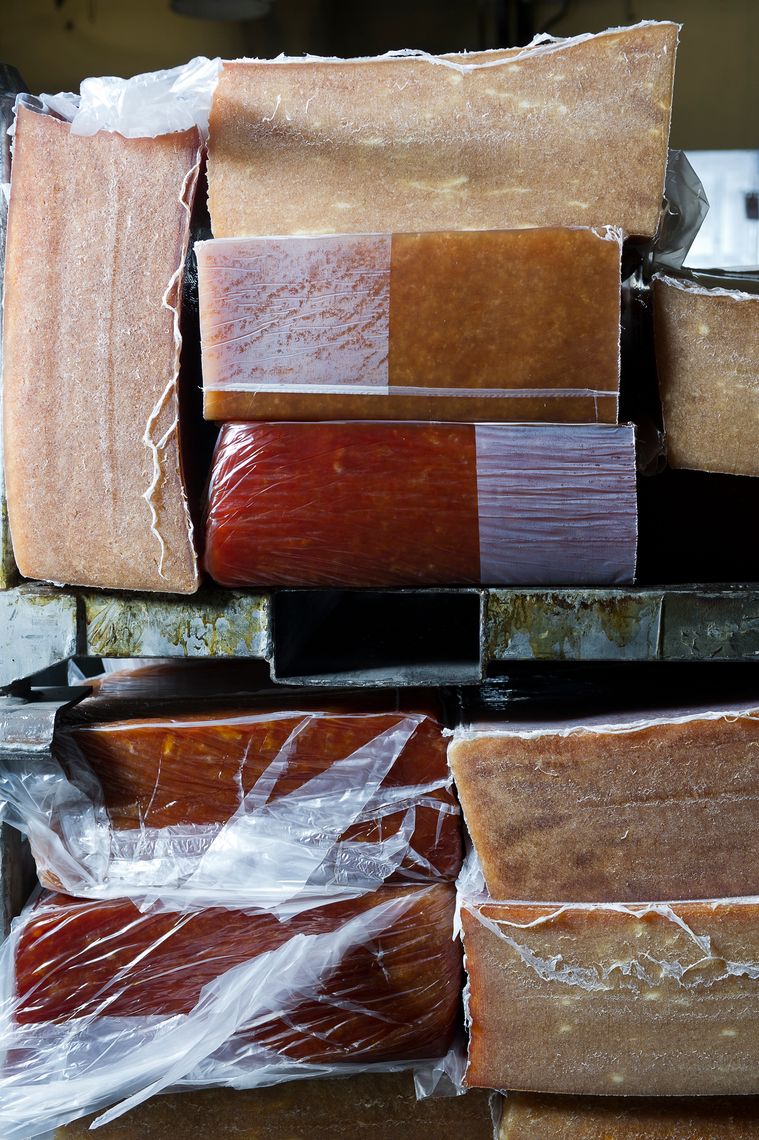The year 2000 represented a turning point in the history of the Troyes plant. Michelin announced a major restructuring plan to reduce the group’s industrial footprint in Europe and to specialize its plants. This plan validated the closure of the Troyes car tire production department, with the consequential loss of 450 out of 1,300 jobs.
In 2012, the Kleber factory became a Michelin brand factory in order to take advantage of all the Group’s industrial technology and to maintain its positioning on premium markets.
In November 2021, the Michelin Group announced a project for 2021-2026 to enable the factory to strengthen its positioning on the premium agricultural tire market. The project provided for a far-reaching modernization program for the tire production activity and the transfer of rubber mixing, which employed 114 people, to the Montceau-les-Mines site, without any forced departures. It was buoyed by a substantial investment plan of up to 80 million euros over 5 years, for modernizing the agricultural tire production department and enhancing quality of life at work.
5 years to co-build the future
The site’s 2021-2026 roadmap should enable it to reinforce its overall performance and consolidate its position in the Group’s industrial strategy in Europe, focusing on two priorities:
- Producing tomorrow’s tire ranges at competitive prices by moving into more lucrative markets, in particular high-power tractor markets;
- Developing the site’s attractivity by enhancing quality of life at work in all its aspects. In 2023, the factory is well on its way to achieving this transformation, despite a complex economic context marked by economic downturn which is affecting its activity.
Industrial commitment
Modernizing the production department
In 2022, the site introduced its first robots with the aim of eliminating strenuous tasks and those with low added value in its departments. A plan to introduce automated forklift trucks will also be implemented in 2024.
A flagship project: Cosmos
The Troyes plant is currently working on an innovative, more effective and ergonomic agricultural tire assembly machine. Co-developed by a multidisciplinary team of ergonomists, engineers, product developers, technicians and the site’s production operators, the first prototype is set for completion in December 2023.
Environmental commitment
In 2020, the Troyes site defined its zero CO₂ roadmap to meet the Michelin Group’s objective to half emissions by 2030 and to achieve carbon neutrality by 2050.
The site aims to improve its energy efficiency by 2% per year. This result is possible thanks to awareness-raising among factory staff, the insulation of machines and buildings, daily maintenance and management and digitalization, which allows the impact of actions to be evaluated rapidly.
To reach the Group’s decarbonization objectives for 2030, two additional technical levers are being developed: an overhaul of the heating system and the electrification of some industrial processes. The Unité de Valorisation Energétique [Energy Utilization Unit], operated by Valaubia since 2021, already provides 50% of the site’s summer decarbonized steam requirements.
The Troyes plant’s environmental priorities also include achieving a significant reduction in water consumption. The various modernization projects, as well as the development of processes converted into closed circuits, will help make considerable water savings by 2024.
Human commitments
The transformation of the Troyes site requires particularly strong commitment on a human level from all the teams and at every level of the establishment, in order to meet a series of challenges: to support rubber mixing department staff, enhance the site’s attractivity and working conditions, develop skills, step up social dialogue, etc.
Preserving the quality of social dialogue
Since 2019, the quality of social dialogue has been crucial for pre-empting, preparing and implementing the site’s transformation under the best possible conditions. Joint troubleshooting of the plant’s challenges (production costs, ergonomics, attractivity, reactivity) has enabled the site’s new roadmap to be cobuilt, in particular the section on investments and social assistance.
In a complex period, characterized by structural reorganization and economic slowdown, maintaining high-quality social dialogue is fundamental for the project’s success.
Supporting rubber mixing department employees
The transfer of the rubber mixing department to the Michelin de Montceau-LesMines plant began this year and will continue progressively until the end of 2025. The 114 employees concerned benefit from Michelin’s ADAPT 2021-2023 national agreement, which has just been extended specifically for the Troyes site for 2024- 2025. Benefits include early retirement, mobility within the Troyes site, mobility to the Montceau-les-Mines rubber mixing department or another Michelin site in France, or voluntary external mobility for employees who prefer to leave the Group. A local agreement was signed in the summer of 2022 between the management and the establishment’s trade unions to complement the national agreement with measures specifically designed for Troyes rubber mixing department employees.
The site enlisted the support of a specialized firm and introduced a series of measures (skills assessments, vocational guidance, ‘day in the life’ days to discover the production department, job fairs) to enable every employee concerned to make the right choice. In 2023, the progressive drop in activity enabled a first group of some thirty employees to make their decision: 15 employees opted for external mobility; 7 will take early retirement, 2 employees will join the agricultural tire production teams in Troyes; and 5 people will continue with rubber mixing in Montceau-les-Mines.
Recruiting the necessary skills
In parallel, the site is seeking to avoid recruitment difficulties in the Troyes basin by developing innovative programs. For example, two years ago the factory set up the Ilot Avenir program to create, in particular, a specific production area to ensure tailored monitoring for new hires. Since 2021, 30 operators have been recruited on permanent contracts within this framework, and 90% of them are still working today. The teams are continuing their efforts to develop the most efficient vocational rehabilitation programs possible, with support from their territorial partners, the Maison de Région Grand Est, the Aube Department, Troyes Metropole and La Chapelle-Saint-Luc Town.
